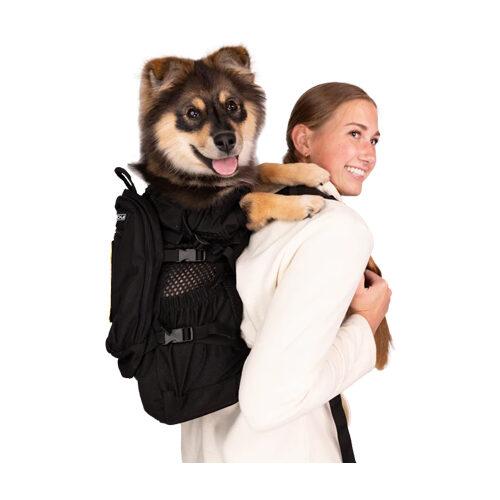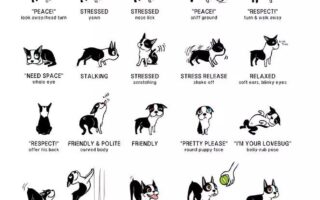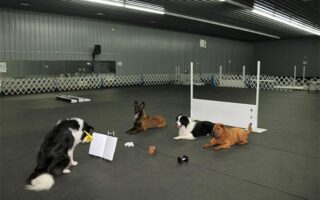Title: “Unleashing Potential: The World of K9 Sport”
In a realm where athleticism meets companionship, K9 sport emerges as a captivating blend of teamwork and training. With roots steeped in tradition and a spirit that celebrates the unbreakable bond between dogs and their handlers, this dynamic discipline offers a unique platform for dogs to showcase their skills while fostering an unparalleled connection with their humans. From agility courses that test speed and precision to obedience trials that highlight discipline and focus, K9 sport encompasses a diverse array of activities that cater to breeds of all shapes and sizes. As we delve into this vibrant world, we’ll explore the exhilarating challenges and rewarding experiences that await both canine athletes and their devoted trainers, revealing why K9 sport is more than just a pastime—it’s a lifestyle.
Table of Contents
- Exploring the Unique Disciplines Within K9 Sport
- Preparing Your Dog for Success: Training Techniques and Tips
- Enhancing Performance with the Right Equipment
- Building a Strong Bond: The Role of Trust and Communication in K9 Sport
- Q&A
- Key Takeaways
Exploring the Unique Disciplines Within K9 Sport
Within the realm of K9 sport, a plethora of unique disciplines emerge, each harnessing the innate abilities of dogs while promoting teamwork, agility, and trust between handler and canine. For instance, agility involves navigating a course filled with obstacles like jumps, tunnels, and weave poles, showcasing the incredible speed and precision of participating breeds. Another engaging discipline is tracking, where dogs use their keen sense of smell to follow a scent trail, replicating the age-old instinct of their wild ancestors while competing in various environments. Other noteworthy disciplines include:
- Flyball: A relay race where dogs jump over hurdles and trigger a spring-loaded box to retrieve a tennis ball.
- Schutzhund: A test of a dog’s skills in tracking, obedience, and protection work.
- Disc Dog: Dogs showcase their athleticism through retrieving flying disks, performing jumps and tricks mid-air.
Moreover, organized competitions provide not just entertainment but also a breeding ground for camaraderie among handlers and their furry partners. The exhilarating atmosphere of events like canine freestyle, often described as “dancing with dogs,” allows handlers to choreograph routines set to music, creating a captivating spectacle of grace and skill. To give a better understanding of the different categories, here’s a simplified overview in table format:
| Discipline | Description | Key Skills |
|---|---|---|
| Agility | Obstacle course racing. | Speed, precision, teamwork. |
| Tracking | Scent trail following. | Smell, focus, endurance. |
| Flyball | Relay race with hurdles. | Speed, agility, teamwork. |
Preparing Your Dog for Success: Training Techniques and Tips
To set your dog up for a successful journey in K9 sport, utilizing the right training techniques is essential. Start by establishing a solid foundation of basic obedience commands such as sit, stay, and come. These commands will not only enhance your dog’s behavior but also prepare them for more advanced skills. Consistency is key, so use positive reinforcement methods like treats, praise, and playtime to encourage good behavior. Schedule regular training sessions that gradually increase in difficulty to keep your dog engaged and motivated. Break tasks down into manageable chunks, allowing your dog to master each before progressing.
In addition to obedience training, incorporating fun activities can stimulate your dog mentally and physically. Engage in agility exercises, such as jumping over hurdles or weaving between poles, to improve coordination and build confidence. Consider participating in training classes or K9 sport clubs for an opportunity to socialize and learn from other handlers. Keeping a log of your dog’s progress can be a great motivator; this record will help you assess strengths and weaknesses, making adjustments to your training plan as needed. Here’s a quick overview of useful activities:
| Activity | Benefits |
|---|---|
| Agility Training | Enhances physical coordination and confidence |
| Fetch Games | Boosts energy release and promotes retrieval skills |
| Obstacle Courses | Improves problem-solving and physical ability |
| Flyball | Encourages teamwork and speed |
| Tracking Exercises | Stimulates natural scenting abilities |
Enhancing Performance with the Right Equipment
In the dynamic world of K9 sports, the right equipment can significantly boost both performance and safety for your canine athlete. Selecting gear that is tailored to the specific sport not only enhances your dog’s capabilities but also ensures they remain comfortable and protected. When choosing equipment, consider quality materials and ergonomic designs that cater to the unique needs of your dog. A few essential items include:
- Harnesses: Opt for adjustable, padded harnesses that distribute pressure evenly.
- Leads: Use durable, lightweight leads that provide flexibility and control.
- Protective gear: Consider elbow and knee pads for dogs engaged in high-impact activities.
Furthermore, it’s vital to keep your dog’s fitness regime consistent and appropriate for their breed and age. Regularly assess the condition of their gear to ensure it meets performance standards and fits well. Understanding the benefits of each type of equipment can make a tangible difference in your K9’s capability. Here’s a table summarizing the recommended gear based on specific K9 activities:
| Activity | Recommended Equipment |
|---|---|
| Agility | Lightweight harness, slip leads |
| Dock Diving | Buoyant jackets, water leashes |
| Rally Obedience | Padded collars, reflective harnesses |
Building a Strong Bond: The Role of Trust and Communication in K9 Sport
In the world of K9 sport, developing a profound connection between the handler and their canine partner is essential for success. This bond is predominantly cultivated through trust and communication, both of which are fundamental to effective training and performance. Handlers must establish themselves as reliable leaders, earning their dog’s confidence with consistent commands and positive reinforcement. It’s important to create an environment where the dog feels secure and knows what is expected, fostering a sense of stability and understanding. This dynamic ultimately leads to improved focus and enthusiasm during competitions.
Effective communication goes beyond verbal commands; it encompasses body language and emotional cues as well. Recognizing and responding to a dog’s subtle signals can significantly enhance the partnership. For handlers, being attuned to their dog’s needs is crucial, and this can be developed through regular practice and observation. Here are some key elements to consider in strengthening this connection:
- Consistency in training methods to build confidence.
- Positive reinforcement to encourage desired behaviors.
- Active listening to respond to the dog’s non-verbal cues.
- Frequent bonding activities outside of training sessions.
The relationship between handler and dog in K9 sports can be represented in the following table, illustrating the interplay of trust and communication:
| Aspect | Trust | Communication |
|---|---|---|
| Definition | Confidence in the handler | Exchange of cues and signals |
| Building Method | Consistent training | Clear commands |
| Outcome | Willingness to perform | Enhanced cooperation |
Q&A
Q&A on K9 Sport: Unleashing Canine Potential
Q1: What is K9 Sport?
A1: K9 Sport refers to a variety of competitive activities involving dogs, showcasing their agility, obedience, strength, and intelligence. These sports not only highlight the special bond between humans and their canine companions but also promote physical and mental wellness for dogs. Common K9 sports include agility, flyball, obedience trials, scent work, and dock diving, among others.
Q2: How did K9 Sport come to be?
A2: The origins of K9 Sport can be traced back to ancient civilizations where dogs were bred and trained for specific tasks, such as hunting and herding. Over time, organized competitions began to emerge, particularly in the 20th century, allowing dog owners to showcase their pets’ skills in a structured environment. Today, K9 Sport has expanded globally, attracting enthusiasts from all walks of life who appreciate the athleticism and intelligence of dogs.
Q3: What are the benefits of participating in K9 Sport?
A3: Engaging in K9 Sport offers numerous benefits for both dogs and their handlers. For dogs, it provides essential physical exercise, mental stimulation, and an outlet for natural instincts. For handlers, it fosters a deeper connection with their dogs and enhances training skills. Additionally, K9 Sport encourages socialization, promotes teamwork, and builds a sense of community among participants.
Q4: Are there specific breeds that excel in K9 Sports?
A4: While many breeds can participate in K9 Sports, certain breeds may possess natural attributes that give them an edge. For instance, herding breeds like Border Collies and German Shepherds often excel in agility due to their intelligence and athleticism. In contrast, sporting breeds such as Labrador Retrievers thrive in scent detection and retrieval tasks. Ultimately, a dog’s drive, training, and bond with their handler play significant roles in their success, regardless of breed.
Q5: How can someone get started in K9 Sport?
A5: Getting started in K9 Sport is an exciting journey! First, assess your dog’s interest and abilities. Many local dog training clubs offer classes and workshops specifically designed for various K9 Sports. Joining these classes can help you learn the necessary skills and techniques while socializing your dog with others. Additionally, attending competitions as a spectator can provide inspiration and insight into the different sports available.
Q6: What should pet owners consider before competing in K9 Sports?
A6: Before diving into K9 Sports, pet owners should consider several factors, including their dog’s age, health, and temperament. It’s essential to ensure your dog is physically fit and healthy enough for the chosen sport. Gradual training is crucial; overexertion can lead to injuries. Also, understanding your dog’s personality will help determine which sports align with their skills and preferences, creating a rewarding experience for both of you.
Q7: Are there any challenges associated with K9 Sport?
A7: Like any competitive activity, K9 Sports come with their share of challenges. Handlers may encounter training difficulties, such as overcoming distractions or mastering specific skills. Time commitment is another factor to consider, as consistent practice and participation in classes or events are crucial for success. Additionally, competition can sometimes create pressure, so maintaining a positive mindset and keeping the experience enjoyable for both dog and handler is vital.
Q8: Can K9 Sport positively impact a dog’s behavior?
A8: Absolutely! Engaging in K9 Sport can lead to improved behavior in dogs. The mental and physical stimulation gained through structured activities tends to reduce behavioral issues such as anxiety and excessive barking. In turn, a well-exercised dog is often calmer and more focused, making everyday life smoother for both the pet and owner.
Q9: What is the future of K9 Sport?
A9: The future of K9 Sport looks promising, with growing interest worldwide. Innovations in training techniques, technology in tracking performance, and increased accessibility through online platforms are likely to enhance participation. As we continue to recognize the benefits of active, engaged dogs, K9 Sport will likely evolve, further celebrating the talents and capabilities of our canine friends.
Q10: How can enthusiasts connect with the K9 Sport community?
A10: Connecting with the K9 Sport community can be as simple as stepping into your local dog training center or attending a nearby event. Social media platforms, such as Facebook and Instagram, also provide networks for enthusiasts to share experiences, tips, and resources. Additionally, online forums and national organizations focused on specific K9 Sports can help you make valuable connections and keep you informed about upcoming competitions and training opportunities.
Key Takeaways
As we conclude our exploration of K9 sports, it’s clear that these engaging activities offer far more than mere competition; they foster a profound bond between handler and dog, promoting physical fitness and mental stimulation for both. Whether you are drawn to the agility of a fast-paced course, the precision of obedience trials, or the thrill of dock diving, each facet of K9 sports presents an opportunity to celebrate the unique abilities of our four-legged companions.
In a world where the pace of life often separates us from nature and play, K9 sports remind us of the joy that comes from partnership, trust, and shared effort. As you consider embarking on this vibrant journey with your canine athlete, remember that the true essence lies not just in titles and trophies, but in the laughter, learning, and lasting memories created along the way. So grab your leash, don your sneakers, and step into the exhilarating realm of K9 sports—where every moment is an invitation to discover the extraordinary potential of teamwork.



